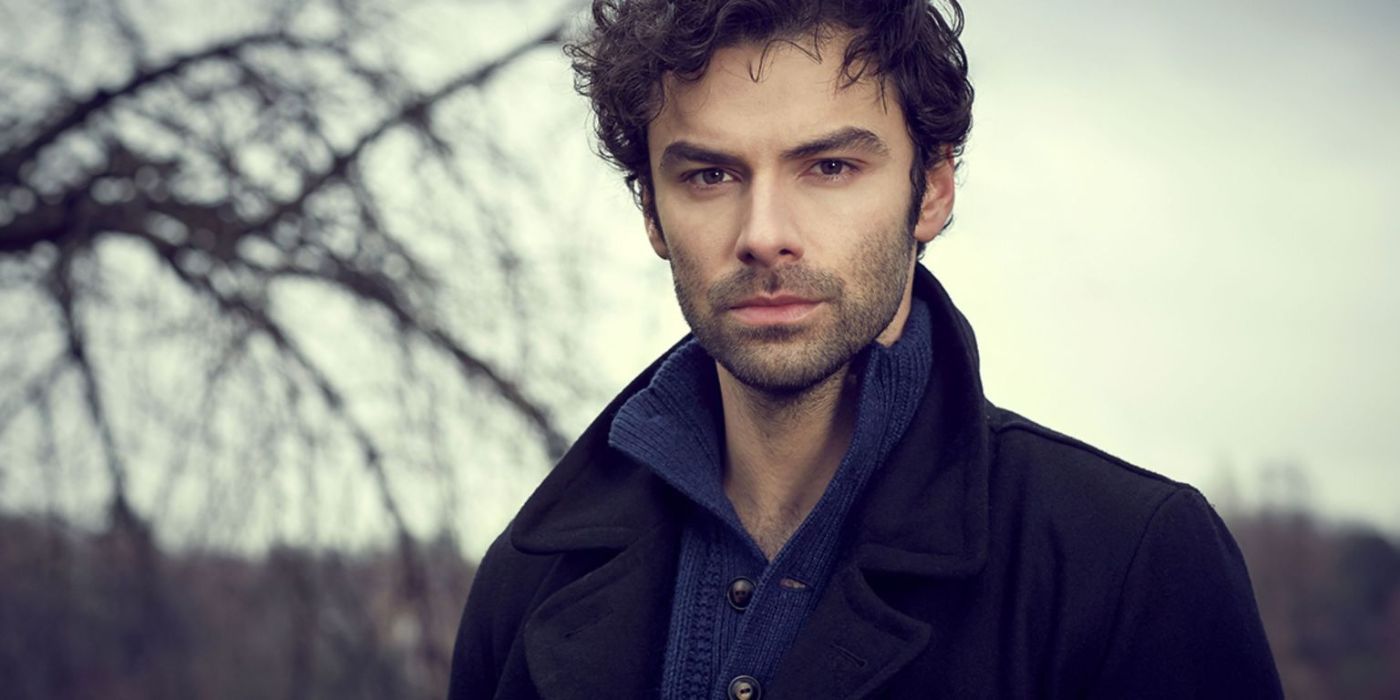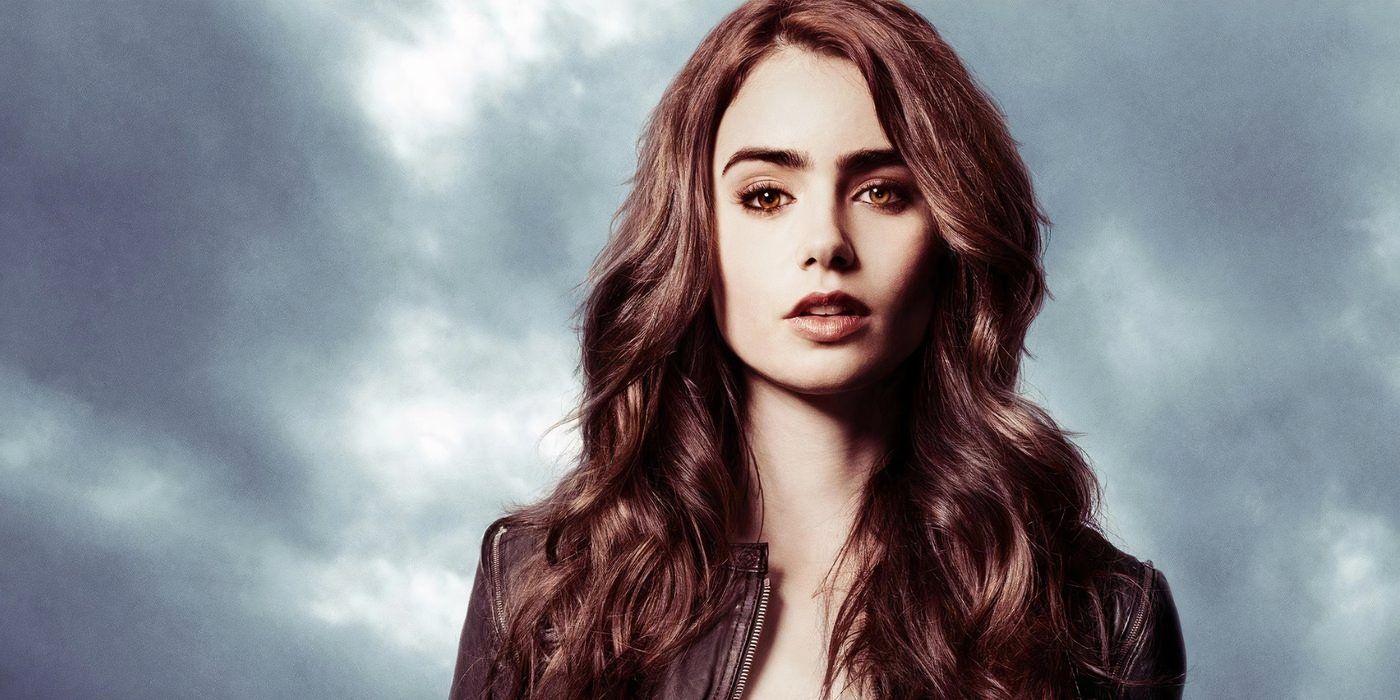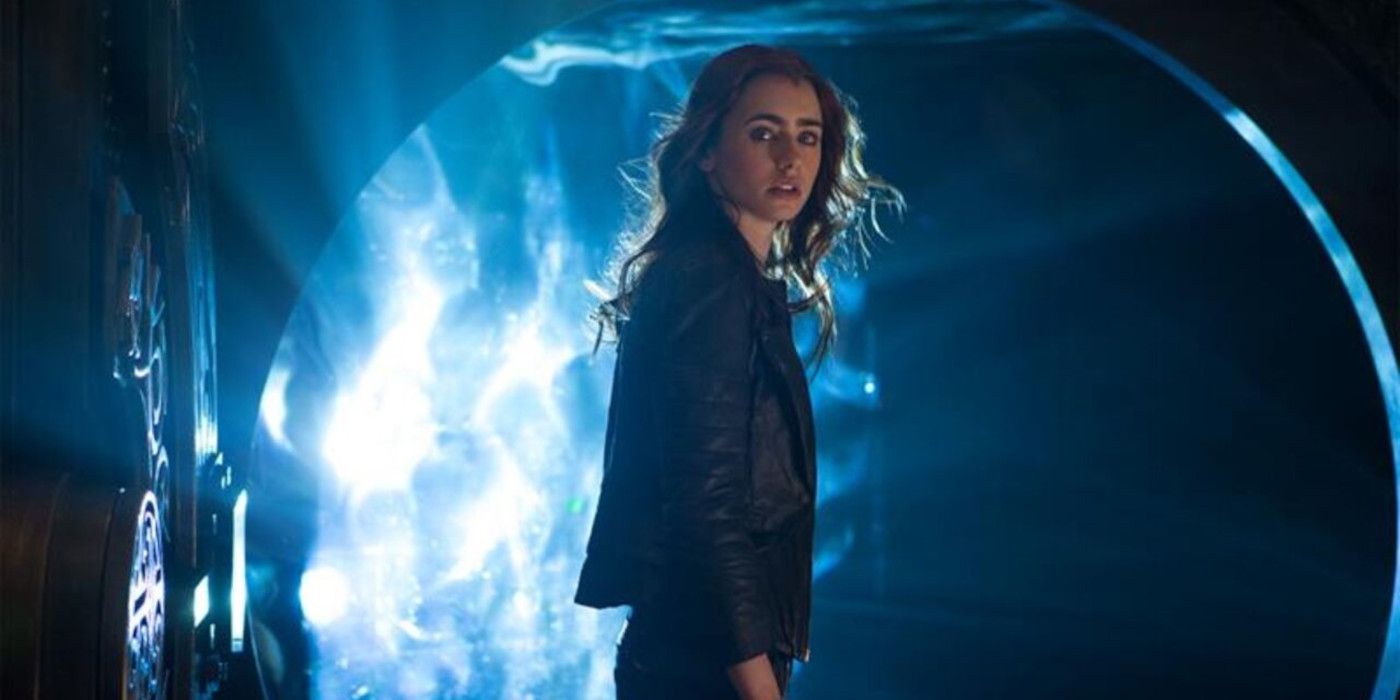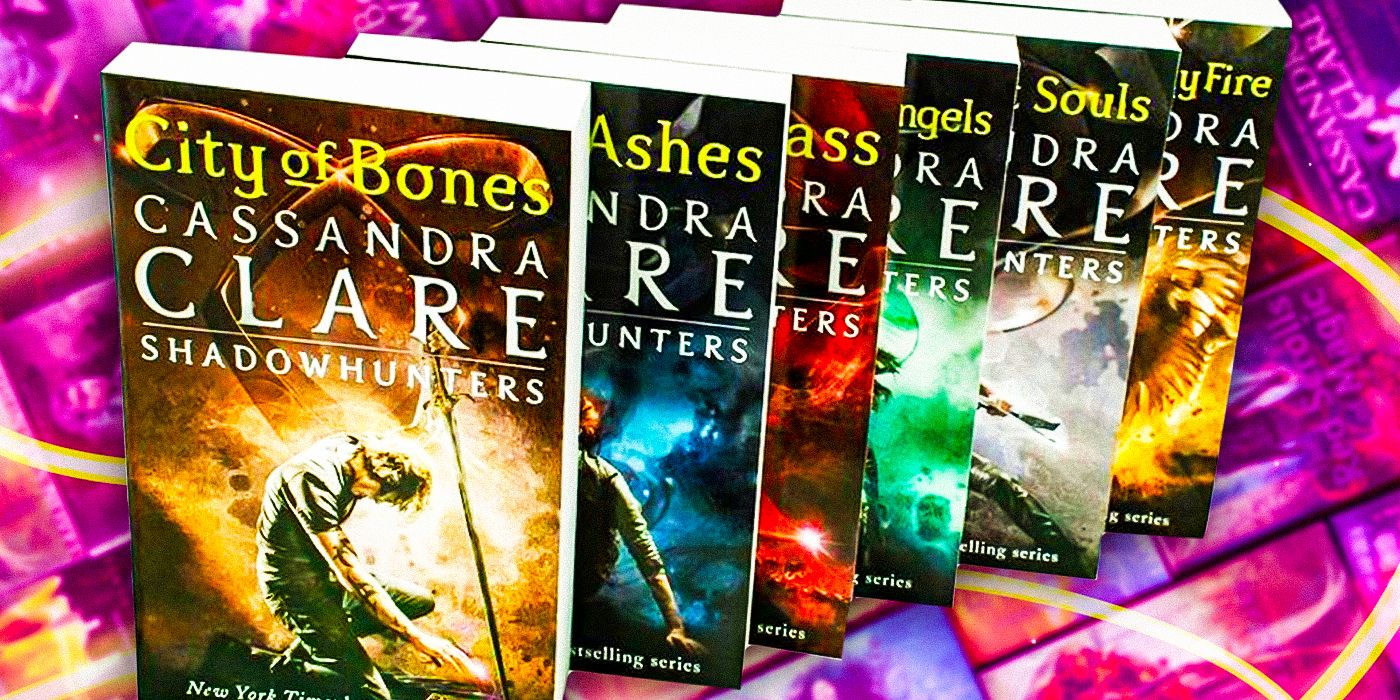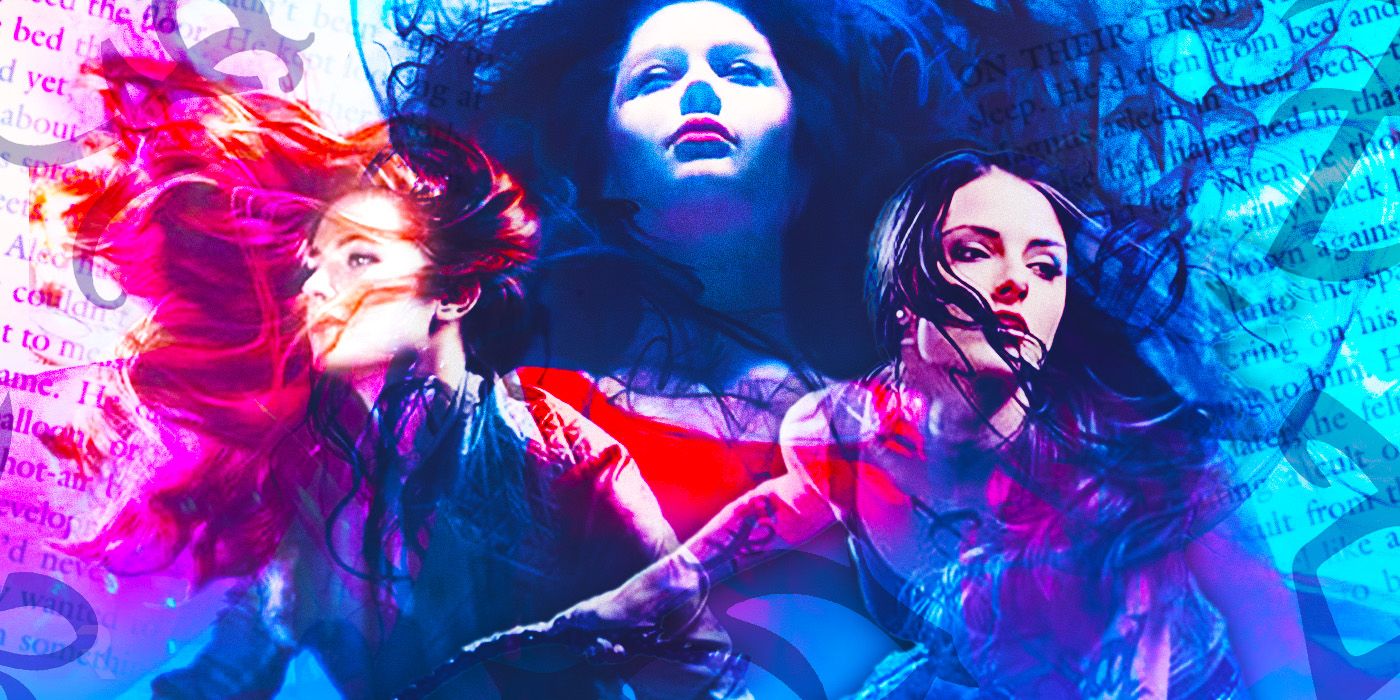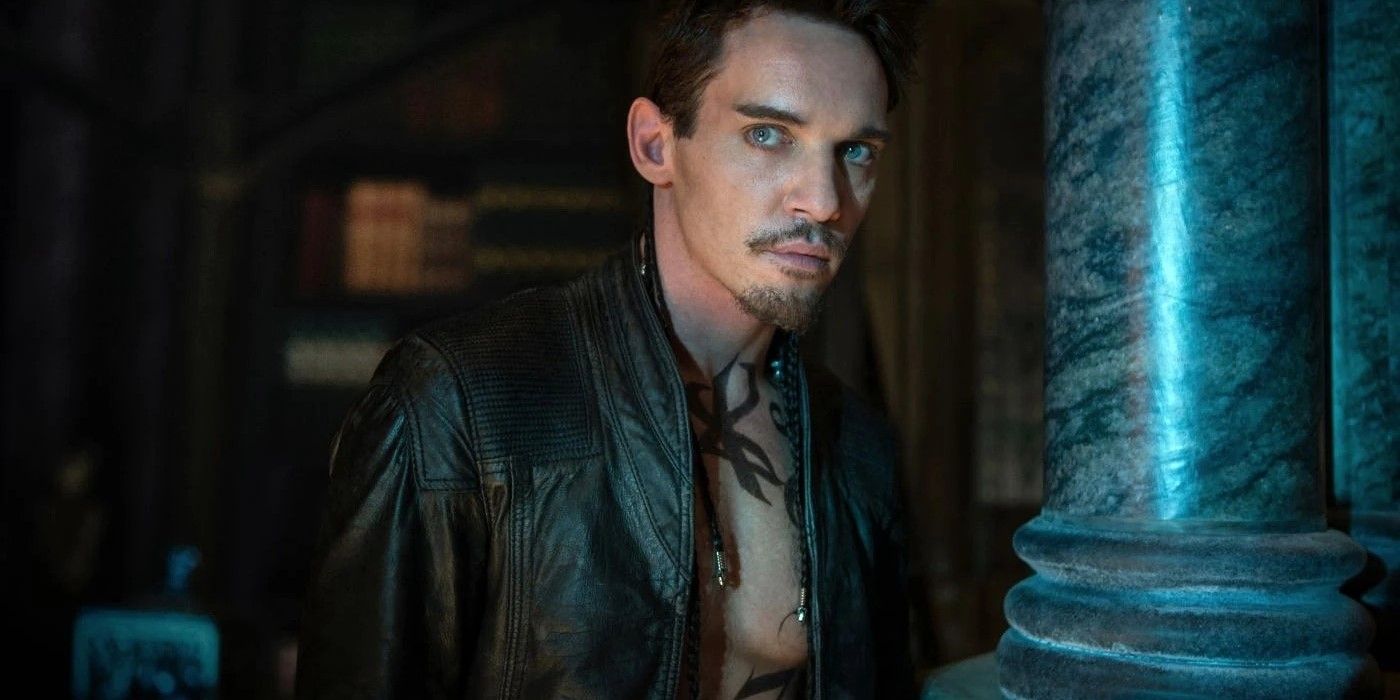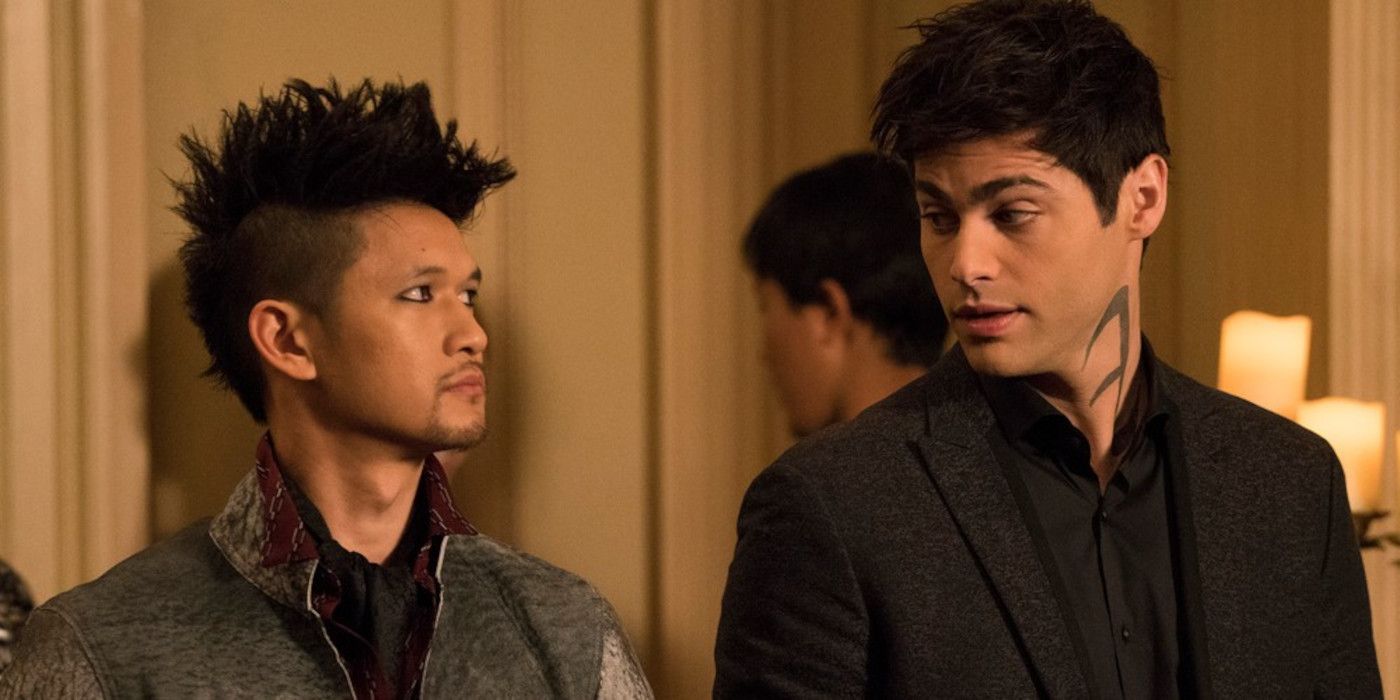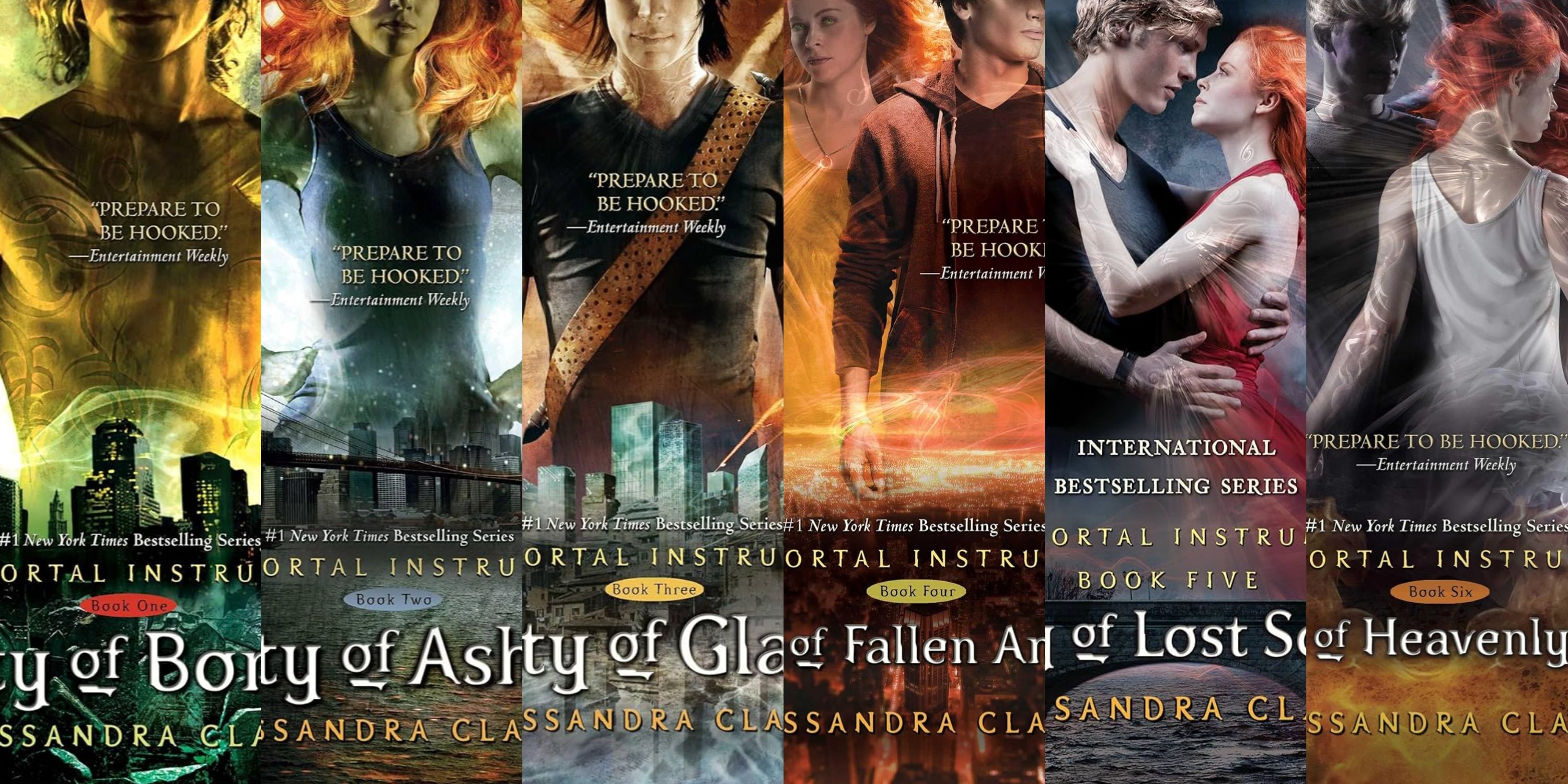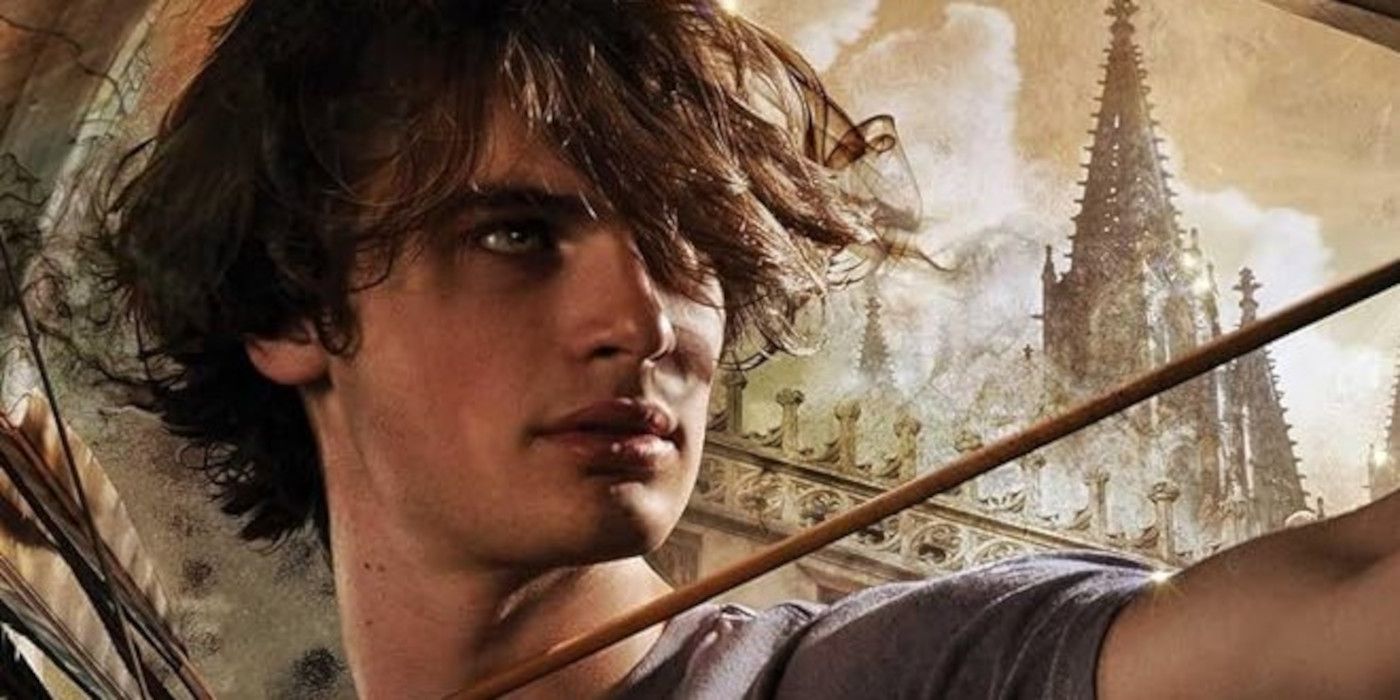Summary
-
The Mortal Instruments
kicked off the
Shadowhunter Chronicles,
but they do have some notable issues. - Cassandra Clare’s first series is a product of its time, and it contains many popular tropes from the 2000s and 2010s.
- Some of the harsh realities about
The Mortal Instruments
get much better in Clare’s later books.
The Mortal Instruments is the first series in Cassandra Clare’s Shadowhunter Chronicles, and there are harsh realities of reading these books 10 years after City of Heavenly Fire debuted. Clare has come a long way since City of Bones, the first installment in The Mortal Instruments, hit shelves — and her Shadowhunters universe has expanded significantly as well. Although The Mortal Instruments was initially meant to be a trilogy, it went on for three more books. It also spun out into other series, including The Infernal Devices, The Dark Artifices, and The Last Hours.
The Mortal Instruments books started Clare’s fantasy universe, but there are elements of the original series that may raise eyebrows a decade after it ended. Certain developments and storylines haven’t aged all that well, and there are other harsh realities of picking up City of Bones and its sequels years later. While re-reading the books may still be enjoyable, it’s hard to ignore these details. This is especially true after reading Clare’s more recent work.
Related
15 Most Anticipated Fantasy Book Series Coming Out The Rest Of 2024
It can be tempting to think the best fantasy releases of 2024 have already hit shelves, but there are even more exciting books arriving this year.
15 The Mortal Instruments Tries To Be Too Dark
There Are Too Many Gothic Quotes
It’s clear that Cassandra Clare wanted to show that her story was dark and foreboding. However, at the end of the day, this is a young adult fantasy novel series. It is about kids falling in love, finding danger, defeating evil, and growing up. However, Claire wanted to make it seem a lot more grown-up than it was, which doesn’t necessarily fit the genre. This comes across in several quotes that Claire uses to introduce her chapters, add to her acknowledgments, and even to name her chapters.
Claire wants people to know the dangers and dark atmosphere is important
She uses quotes from Shakespeare’s Julius Caesar, which refers to a “dreadful thing” and a “hideous dream.” The title page for Dark Descent has a quote from none other than Paradise Lost, the story of the fallen angels from Heaven, which talks about “chaos and eternal night.” There is even a chapter called “Pandemonium.” It is clear that Claire wants people to know the dangers and dark atmosphere is important, but by adding so many classical quotes, it comes across as a little pretentious.
14 The Supposed Plagiarism
This Started As Harry Potter Fan Fiction
There is a lot of trouble right now when it comes to the Harry Potter fandom. Thanks to actions by author J.K. Rowling, many fans are turning away from the Boy Wizard to show their disdain for what Rowling has been saying and doing. It won’t stop the franchise from remaining popular with the mass audience, but it has soured many people’s outlooks on the books and the movies based on them.
The Mortal Instruments was, at first, a piece of Harry Potter fan fiction. It is easy to see Harry, Ron, Hermione, Draco, and more in the characters that came out of this Cassandra Claire book series. She did enough to make it unique to move past that. It is even considered better than Twilight, which was also a Harry Potter fan fiction. Despite that, the connections are still there, and it is enough to make some newer fans who want nothing to do with Potter want to avoid this series as well.
13 Clary Is Not A Good Hero
She Makes Too Many Mistakes
It is okay for heroes to make mistakes because that makes them stronger in the end. However, when it comes to heroes in young adult novels, there are few who make as many bad decisions as Clary does in The Mortal Instruments. She does so many things that almost get everyone around her killed, and she never seems to learn from it. She also gets upset when people point out the mistakes she makes, which separates her from stronger characters in other novels, such as Hermione, who gets smarter and stronger.
She also did a lot of bad things to people who trusted her. The way she treated Jace in the first book was terrible, and she also gaslit Simon more than once. She is reckless, and that actually helps her more than when she tries to do something planned. What really holds her back, though, and hurts the series as a whole, is that the other supporting characters are almost uniformly better than her. It is almost like Claire chose the wrong person to play the hero in her stories.
12 Cartoony Villains
The Villains Are Too Over-The-Top To Take Seriously
It is important, when creating villains for a work of fiction, to make them evil, but not to the point where no one takes them seriously. In the Harry Potter franchise, Voldemort is a perfect villain. He is evil because he does bad things, and he doesn’t have to make ridiculous proclamations to do so. There are some minor villains in that franchise who do go overboard a little, but it is easier to see Draco being a jerk bully than to have him as a cartoonish villain acting like Dr. Evil from Austin Powers.
They came across too much like kids who are trying too hard rather than people who present a legitimate threat.
In The Mortal Instruments, many of the villains early in the series are almost too evil, like Claire was trying too hard to show that these were bad guys. They were good-looking kids with evil thoughts, brandishing weapons and trying to make sure everyone around them knew they were the bad guys there. Not once did they seem like a threat because they came across too much like kids who are trying too hard rather than people who present a legitimate threat. This got better, but early on, it was a problem.
11 Mortal Instruments Ending Went Off The Rails
Things Went Too Wild In The Book & The Movie
If there is one thing that The Mortal Instruments fans can complain about when it comes to the movie, it is the ending. The film itself made a mess of sorts of the book’s ending and almost ruined any chance of moving on with the series in a way that follows the series. However, to be honest, the book’s ending was also pretty wild and over the top too. The fact that Clary and Jace learn they are related really goes a long way to make the entire book uncomfortable to think about after the twist.
However, there is also more to the ending that just makes it seem like Cassandra Claire was trying to add on as many wild things as she could to make fans want to come back for more. Valentine, being Clary’s dad, was a little too out there, and the ending of the book was something that was never going to be an easy sell when it comes to a movie anyway. Luckily, the later books fixed these problems, but it really makes the first book in the series a little too problematic to look back on without having second thoughts.
10 Clary & Jace’s Sibling Fakeout Was Way Too Uncomfortable
City Of Bones’ Ending Set Up A Problematic Dynamic
City of Bones establishes Clary Fray and Jace Herondale as the central couple of The Mortal Instruments, but its ending twist packs a punch that’s more uncomfortable than anything else. Clare’s first book concludes with Clary and Jace being told that they’re siblings, a harsh realization after they’ve spent the whole novel falling in love. And while the two aren’t actually brother and sister — that’s City of Glass’ big reveal — the dynamic that continues after City of Bones’ ending is deeply uncomfortable.
Despite believing that they’re related, Clary and Jace continue to harbor feelings for one another, which sparked repeated criticism within the Shadowhunters fanbase. The later books gloss over this problematic dynamic because the two aren’t truly related, but Clare probably should have avoided this sibling fakeout altogether. It’s one of the weakest and most controversial storylines of the Shadowhunter Chronicles, and the series really could have done without it.
9 The Characters Are Horrible To Simon At The Beginning Of The Mortal Instruments
Clary’s New Friends Uphold The Ideologies The Series Criticizes
The central conflict of The Mortal Instruments revolves around Shadowhunters thinking they’re better than everyone else, including ordinary humans and Downworlders like vampires and werewolves. The main villain starts a crusade against everyone he views as being beneath the Nephilim. But while The Mortal Instruments’ main characters fight his takeover, many of them exhibit the same belief system throughout the earlier books. Jace, Alec, and Izzy are pretty terrible to Simon when they first meet him, and that’s mostly because they view him as less valuable than Shadowhunters like them.
While
The Mortal Instruments’
main characters fight his takeover, many of them exhibit the same belief system throughout the earlier books.
This dynamic changes over the course of the series, and it’s clear the characters only feel this way because of their upbringing. Still, it can be difficult to re-read their treatment of Simon in the early Mortal Instruments books. Their character growth is commendable, but Clary’s new friends aren’t very likable when she first meets them. And even Clary treats Simon poorly at times, losing him when he’s turned into a rodent at a party and stringing him along despite her feelings for Jace.
8 The Mortal Instruments Uses Outdated YA Fantasy Tropes
The Shadowhunter Series Is A Product Of Its Time
The love triangle between Clary, Jace, and Simon doesn’t just highlight how poorly Clary treats her childhood friend. It also underscores that The Mortal Instruments are a product of their time, utilizing many outdated YA fantasy tropes that were massively popular in the 2000s and early 2010s. While love triangles aren’t inherently bad, the one between Clary, Jace, and Simon feels forced at times — almost as though there was an expectation of the dynamic. Clare does much better with this trope in The Infernal Devices.
The Mortal Instruments utilizes other outdated tropes as well, with Clary often embracing the “not like other girls” mentality — though, thankfully, she seems to outgrow this by the end of the series. It’s hard to look back at her initial perception of Izzy and other girls in the series and not cringe a bit. And the character archetypes in The Mortal Instruments feel all too familiar, with Clare’s leads resembling many other fantasy heroes and heroines of the time.
7 The Mortal Instruments’ Has Too Many Unnatural One-Liners
Some Of The Characters’ Dialogue Doesn’t Flow
The Mortal Instruments has a lot of fun with the back-and-forth between its characters, but some of its one-liners feel too unnatural and actively take readers out of the story. At certain points, it feels like Clare is trying too hard to make her characters sound clever and witty. In reality, it’s unlikely teenagers would ever speak like Jace — even with the intense Shadowhunter upbringing. While some of the jokes that Jace cracks are funny, others feel too unbelievable. And he’s not the only character with this problem, though it’s certainly the clearest in his dialogue.
Clare’s later Shadowhunter books strike a better balance with their dialogue, juggling the author’s signature humor with more grounded moments. Re-reading The Mortal Instruments, it’s clear that her early books have less of this balance. However, they’re still entertaining if readers can look past it.
6 Valentine Could Have Been A Much Better Villain
The Mortal Instruments Big Bad Isn’t A Well-Established Character
Valentine is the Big Bad of The Mortal Instruments series, but he’s not a particularly interesting character. Despite Valentine being Clary’s father, Luke’s former best friend, and a powerful enemy, he doesn’t leave enough of an impression throughout Clare’s first series. Beyond hating Downworlders, it’s hard to say what Valentine’s personality actually is. Readers are told that he is charming, but that doesn’t really come through in Clare’s writing of the character. Reading The Mortal Instruments books, it’s totally unclear what Clary’s mother ever saw in Valentine — or why others followed him.
For all the fear Valentine stirs up, he’s kind of underwhelming. It’s a shame because he really does have potential.
If any character in The Mortal Instruments needs further development, it’s Valentine. Readers are given too much information about the villain without getting to see enough of his antics firsthand. And when readers do get scenes involving the character, they don’t quite do him justice. For all the fear Valentine stirs up, he’s kind of underwhelming. It’s a shame because he really does have potential.
5 Magnus & Alec’s Relationship Is Toxic In The Mortal Instruments
The Fan-Favorite Romance Improves As Time Goes On
Magnus and Alec are a fan-favorite couple from Clare’s Shadowhunter Chronicles, and their relationship begins in The Mortal Instruments series. Alec and Magnus offered an early depiction of LGBTQ+ romance in YA fantasy, and their relationship becomes one of the strongest of the saga. However, it doesn’t start out as healthy as it could. Alec and Magnus’ relationship is toxic at multiple points during The Mortal Instruments — most noticeably when Alec is hiding things from Magnus and wishing away his immortality.
Alec’s behavior can be chalked up to teenage mistakes, and he and Magnus find a way to resolve things. Still, their dynamic is immature and often toxic in the original Mortal Instruments books, particularly the later ones. They seem like a much healthier couple in Clare’s other series, and The Eldest Curses really shines a positive light on their romance.
4 The Series Drags In City Of Fallen Angels & City Of Lost Souls
The Sebastian Storyline Went On For Too Long
The first three Mortal Instruments books move at a satisfactory pace, and City of Heavenly Fire brings the series to a close with a bang. However, Clare’s initial Shadowhunter series drags in the middle, with City of Fallen Angels and City of Lost Souls feeling sluggish compared to the books they’re sandwiched between. Sebastian’s villain arc feels a bit weak in these installments, and most of the relationship storylines are either repetitive or stirring up conflict for the sake of it. Clary’s mother acts irrationally, Clary and Jace face unnecessary communication issues, and the side characters have too much drama.
Clare’s initial
Shadowhunter
series drags in the middle, with
City of Fallen Angels
and
City of Lost Souls
feeling sluggish compared to the books they’re sandwiched between.
The tedious subplots are made worse by the fact that the latter half of The Mortal Instruments only picks up at the end of City of Lost Souls and during City of Heavenly Fire. While it’s worth pushing through books four and five to get to the finale, their lesser quality is a harsh reality of reading The Mortal Instruments. It’s a relief that City of Heavenly Fire makes up for its predecessors’ flaws.
3 Later Shadowhunter Books Make City Of Heavenly Fire’s Sacrifice Less Meaningful
Simon Getting His Memories Back Takes Away From The Impact
City of Heavenly Fire has a tearjerker ending, but later books in The Shadowhunter Chronicles make its conclusion feel less meaningful. At the end of City of Heavenly Fire, the Greater Demon Asmodeus agrees to transport Clary and her friends back to their own realm after they enter the demon realm of Edom. Of course, Asmodeus’ generosity comes with a price. He takes Simon’s memories in exchange for safe passage, ensuring that Simon won’t remember anything of the Shadowhunter world or his friends when they return to the mortal realm.
This loss hits The Mortal Instruments characters hard, and it highlights Simon’s importance in their story. Unfortunately, the weight of Simon’s sacrifice is undone by later Shadowhunter books. Simon eventually undergoes training to become a Shadowhunter and regains his memories. While it’s a happy development for his character, it does take away from City of Heavenly Fire a bit.
2 Cassandra Clare’s Later Shadowhunter Series Are Much Better
Her Writing & Storytelling Improve As The Saga Continues
The Mortal Instruments is probably the most recognizable of Clare’s Shadowhunter series, and it deserves acknowledgment for starting the author’s fantasy saga. However, anyone who’s read all of Clare’s Shadowhunter books will know that her series get significantly better as they go on. Clare has grown as a writer since releasing City of Bones in 2007, and this is evident in her more recent work. The writing feels more mature in series like The Dark Artifices and The Last Hours, and Clare’s storytelling also comes into its own.
The writing feels more mature in series like
The Dark Artifices
and
The Last Hours,
and Clare’s storytelling also comes into its own.
While The Mortal Instruments feels inspired by popular fantasy stories and other books from its time, the rest of Clare’s saga feels like its own unique fantasy franchise. Obviously, it’s more established by the time she reaches The Dark Artifices and The Last Hours. But while the trajectory makes sense, it’s hard to return to The Mortal Instruments after reading the author’s newer additions to the Shadowhunter Chronicles.
1 The Mortal Instruments Will Probably Never Get A Proper Adaptation
The Movies Have Not Lived Up To Expectations
There are plenty of harsh realities of reading The Mortal Instruments books, but one of the harshest has to do with its on-screen adaptations. Clare’s initial Shadowhunter series has been turned into a movie and a TV show, and both takes on her story failed to live up to the source material. A lot went wrong with The Mortal Instruments movie in 2013, and it wasn’t a surprise that it didn’t get a sequel. Freeform’s Shadowhunters TV show lasted longer, but it was also canceled eventually — and it diverged significantly from the books.
After two subpar adaptations, it seems unlikely Shadowhunter fans will ever get a proper adaptation of The Mortal Instruments. This is a shame, as Clare’s fantasy universe has the perfect setup for a full-fledged movie or television franchise. Unfortunately, it would need to start with The Mortal Instruments, and Hollywood is unlikely to take a third chance on those books.
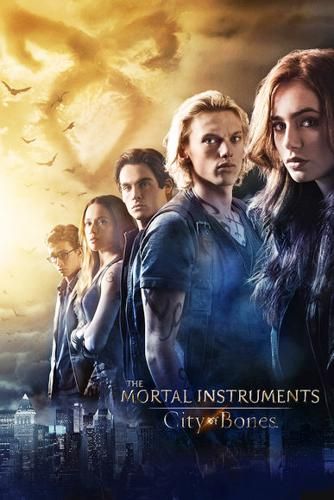
The Mortal Instruments: City of Bones
In The Mortal Instruments: City of Bones, teenager Clary Fray discovers she is a Shadowhunter, a human-angel hybrid destined to fight demons. She delves into an underworld of magic and danger when her mother is kidnapped. Teaming up with fellow Shadowhunters Jace, Alec, and Isabelle, Clary embarks on a quest to save her mother and uncover her own hidden past. Amidst battles with dark forces and a journey of self-discovery, Clary learns the true extent of her powers.
- Director
- Harald Zwart
- Release Date
- August 21, 2013
